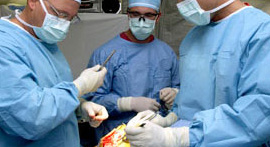Sat-Sun 8:30AM-5PM ET
Princeton Health Professions School Admission Statistics
HPA takes a data driven approach to advising aspiring health professionals. Below are a few selected statistics that illustrate the diversity of Princeton applicants to health professions schools. Data is calculated over five application cycles, from 2018-2022.
Current students can access additional data by logging in and accessing the HPA Virtual Data Binder (alums can request access by emailing [email protected] ). More data is shared with applicants in the year that they apply.
HPA works the most closely with applicants to medical and dental school since these programs ask for the HPA committee letter of recommendation. We have advised students and alumni who are preparing for health professions programs including veterinary medicine, nursing, physician assistant, pharmacy, naturopathic medicine, and public health, among many others.
Additionally, many alums go on to careers in academia, research, policy, government, and many other sectors where their work is directly or indirectly health-related. We hope that Princeton students use their time to explore the diverse array of professional paths within and outside of health. Campus partners like the Center for Health and Wellbeing and Center for Career Development can provide additional guidance on the wide array of ways to integrate an interest in health and healthcare into a professional career.
How successful are Princeton applicants in gaining admission?HPA tracks data most closely for medical, dental, and veterinary school applicants.
For other professions, either comprehensive data is not available to us and/or the number of applicants to the profession is very small.
How successful are Princeton applicants compared to other schools?We do not track our outcomes relative to other schools. There is national acceptance data available online:
What GPA and MCAT score do I need to get into medical school?Admission to medical school is holistic and based on a number of academic and non-academic factors including timeline to application, GPA trajectory, letters of recommendation, state of residence, oral and written communication skills, experiences, and other attributes.
Prospective applicants with lower metrics work with HPA advisers to discuss their specific academic context and next steps.
-
- Some students with lower GPAs took additional courses after graduation (postbaccalaureate) and before application to provide more evidence of readiness for the rigor of the medical school curriculum.
- Learn more about postbaccalaureate record enhancement programs.
There are many timelines to application to medical school. Princeton applicants matriculated to medical school on timelines from directly after graduation (“direct entry”) to fifteen years after graduation.
What schools do Princeton applicants typically attend?Between 2018 and 2022, 561 Princeton alums matriculated at 116 allopathic (MD) and osteopathic (DO) medical schools across the country and internationally. The schools with the largest number of matriculants are:
- Rutgers Robert Wood Johnson Medical School (42)
- Sidney Kimmel Medical College at Thomas Jefferson University (34)
- Icahn School of Medicine at Mount Sinai (28)
- Perelman School of Medicine at the University of Pennsylvania (26)
- Weill Cornell Medicine (26)
- Harvard Medical School (24)
- Case Western Reserve University School of Medicine (18)
- Columbia University Vagelos College of Physicians and Surgeons (17)
- Washington University in St. Louis School of Medicine (16)
- Johns Hopkins University School of Medicine (13)
- Northwestern University Feinberg School of Medicine (12)
- Vanderbilt University School of Medicine (11)
- Albert Einstein College of Medicine (11)
- NYU Grossman School of Medicine (11)
- Zucker School of Medicine at Hofstra/Northwell (9)
- Alpert Medical School of Brown University (9)
- Stanford University School of Medicine (9)
- Geisel School of Medicine at Dartmouth (9)
- University of Texas Southwestern Medical School (9)
- Hackensack Meridian School of Medicine (8)
- Rutgers New Jersey School of Medicine (8)
- Tufts University School of Medicine (8)
- Learn more about factors to consider in school selection
- See map of acceptances for the most recent application cycle
Our advisors want our students to reach their goals, and believe that any Princeton student has what it takes to become a doctor. We try to help each potential applicant reflect on the strength of their candidacy on many dimensions, including grades and MCAT scores, so that they have a realistic understanding of their candidacy.
We might recommend taking another year or two to strengthen aspects of your candidacy, but this is not to raise our acceptance rates–it’s to try to help you reach your goal of getting accepted! Even if we advise you to wait a while, if you choose to apply, we will do our best to support you when you do. We are not gatekeepers to medical school admissions–we are your advocates and coaches along the way.
Find your dream Med School

Learn about the special opportunities international medical schools like the American University of the Caribbean School of Medicine offer prospective medical students as they pursue a career in medicine.

Medical School Admissions Timeline
Every deadline you need to be aware of while preparing for the MCAT and applying to med school.

MCAT Study Guide
Do you know how to actually study for the MCAT? Are you prepping right? Get our free MCAT Study Guide here.

Strategies for Second-Time Applicants
Sometimes, the second time’s a charm. Five ways to improve yourself as a candidate.

What to Expect in Medical School
Considering an MD? Read our overview of the training you’ll receive at an allopathic med school so you know what to expect in medical school.
Mon-Fri 9AM-10PM ET
Sat-Sun 9AM-8PM ET
Mon-Fri 9AM-9PM ET
Sat-Sun 8:30AM-5PM ET
Find the Right College
School and District Partnerships
- About
- Teach or Tutor for Us
- Work for Us
- Affiliate Program
- Partner with Us
- Advertise with Us
- Media
- Contact
- International Partnerships
- Our Guarantees
- Enrollment
Terms and Conditions - Accessibility
- Accessibility – Canada
- Cigna Medical
Transparency in Coverage
©2023 TPR Education IP Holdings, LLC. All Rights Reserved.
The Princeton Review is not affiliated with Princeton UniversityTPR Education, LLC (doing business as “The Princeton Review”) is
controlled by Primavera Holdings Limited, a firm owned by Chinese
nationals with a principal place of business in Hong Kong, China.
- Some students with lower GPAs took additional courses after graduation (postbaccalaureate) and before application to provide more evidence of readiness for the rigor of the medical school curriculum.

